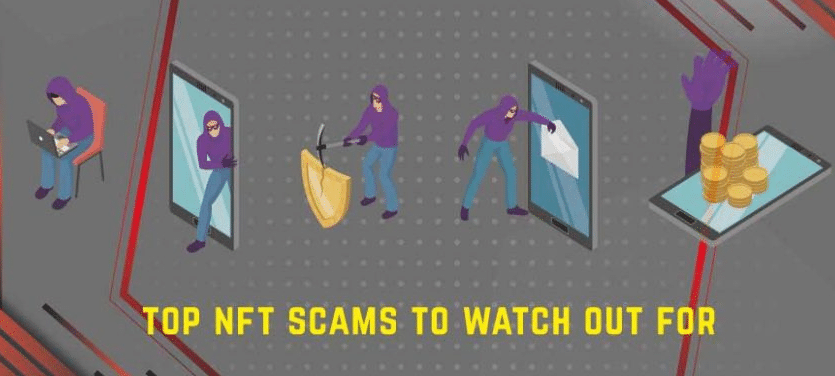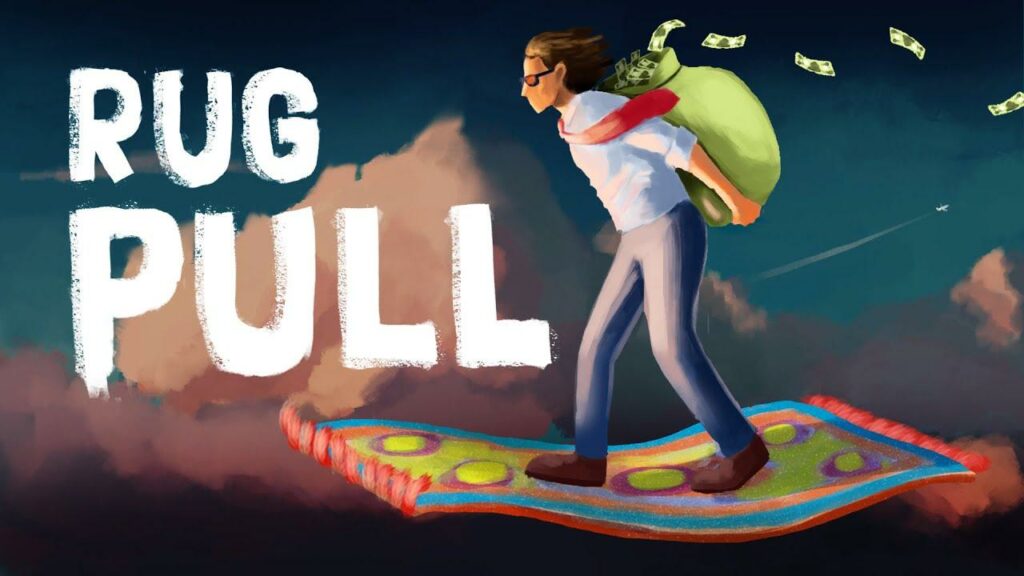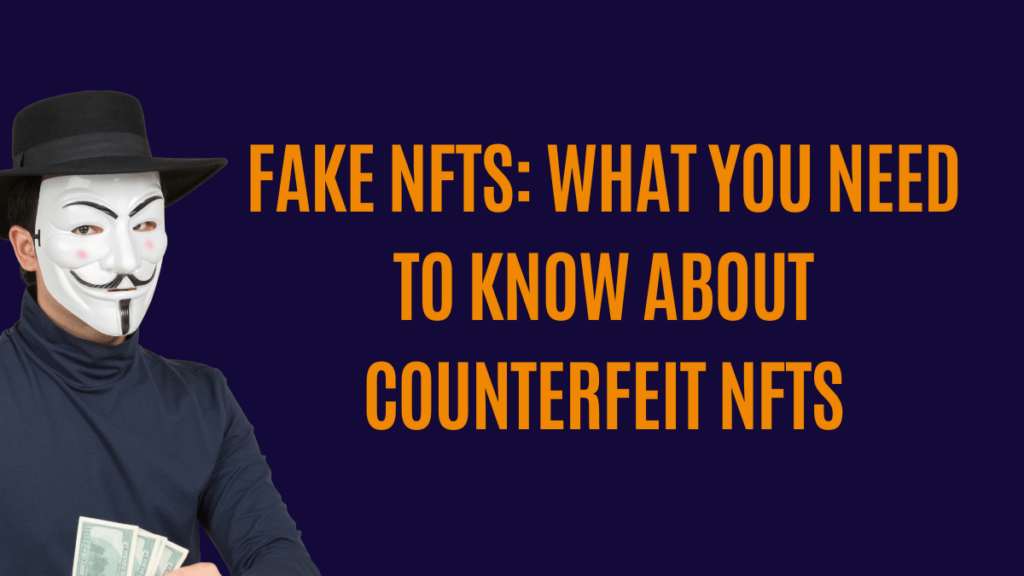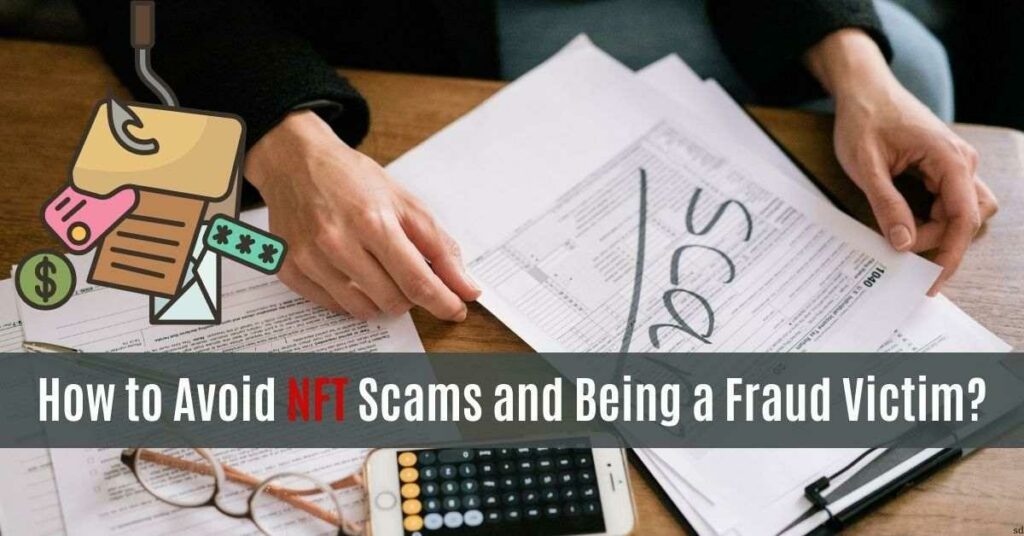Non Fungible Tokens (NFTs) are becoming increasingly popular, sweeping the digital world as the race to digitize real-world objects heats up. Their popularity stems from their ability to allow people to make money by selling digital assets in all shapes and sizes made up of art, images, GIFs, collectibles, and even memes.
NFT sales have already leaped above the $4 billion mark, affirming the massive economy and ecosystem growing at an impressive rate. Amid the tremendous growth, unscrupulous people have come up with ways of scamming unsuspecting clients.
NFTs’ increasing popularity in the mainstream sector has also given rise to phishing attacks that have seen people lose thousands of dollars. Scammers are increasingly creating what looks like authentic websites with the sole intention of conning people into sharing confidential details like their crypto wallets and private keys.
Below are some of the top NFT scams.
Fake marketplaces
The unregulated nature of cryptocurrencies and non-fungible tokens has also led to fake marketplaces set up to dupe people. The fake marketplaces are taking advantage of the growing need to invest in NFTs. While most people don’t know where to go, most have fallen into the trap of carrying out a Google search and only investing in sites that pop up instead of carrying out inept due diligence.

There are millions of phony NFT marketplaces that don’t deal in legitimate NFTs. The sites have sold millions of fake NFTs to unsuspecting clients. In addition, some of the sites ask for private keys and use the information to drain digital wallets.
Staying clear of such phony marketplaces is as simple as dealing with legitimate trading platforms for crypto transactions. In addition, never enter any sensitive information in links or pop-ups.
Rug pull scams
Rug pull scams are similar to the pumping and dumping schemes in capital markets. They involve promoters of a fraudulent project hyping it up through social media channels. As demand for the project increases, the price of the underlying NFTs also tends to increase significantly.

Once the project backers collect significant money from their investors, who anticipate the price of the underlying NFT increasing, they stop backing the project and shut down everything. The net result is the price of the NFT falling dramatically, which only leads to losses for unsuspecting investors.
In addition to pumping the price of the underlying NFTs, some backers end up removing the ability to sell the tokens. The removal mostly occurs when the price of the NFT has increased significantly and a good number of people have invested their money.
One of the best ways to avoid the rug pull scams is to watch project backers and developers closely. The backers should have good reviews on social networks and be developers with a reputable, verifiable record.
Phishing scams
Phishing scams are evolving and finding great use among scammers in duping unsuspecting clients in the burgeoning non-fungible token ecosystem. NFT phishing scams involve phony advertisements propagated through fake websites and pop-ups.
Most of these advertisements ask people to share their private wallet keys. Those who fall into the trap and share the details of their crypto wallets only end up being hacked and everything wiped out in minutes. Last year $2.2 million worth of Bored Ape NFTs went up in smoke as part of an NFT phishing scheme.
In addition, some NFT scammers impersonate legitimate NFT trading platforms and send fake emails. Clicking on the email links only directs people to a fake page where one is usually asked to share their digital wallet private keys.
The best way of staying clear of NFT phishing scams is never to share private keys with anybody. In addition, crypto transactions should only be carried out directly from verified websites to void sharing of sensitive data.
Counterfeit NFTs
It’s no longer a secret that some NFTs have sold for millions of dollars. The hype around such sales has also led to counterfeit NFT scams looking to dupe people. Scammers are increasingly stealing high-profile digital creators’ works, creating copies, and listing them in NFT marketplaces.

People have purchased counterfeit NFTs ending up with worthless digital assets. Last year, NFTs scammers created and promoted fake Fractal NFT that resulted in people losing close to $150,000.
The best way to avoid such scams is to purchase NFTs at legitimate and popular marketplaces. It is also important to pay close watch to sellers’ discord and social media profiles for verification before acing any investment.
NFT giveaways and airdrops
The scam involves scammers posing as legitimate NFT trading platforms on social networks. The idea is to get as many people as possible to promote an NFT giveaway campaign known as airdrops. Those who fall into the trap are normally promised free NFTs if they agree to spread the NFT campaign.
In the end, the scammers may ask you to link your Metamask Wallet credentials to receive a prize after the campaign. The scammers will often record whatever you type and try to get any passwords to the account that they can use to steal the library of NFTs.
How to avoid NFT scams
While NFT scams come in different ways, most can be avoided. For instance, refraining from clicking on links or attachments from unknown sources is a sure way of averting the risk of ending up in phony marketplaces or NFT platforms. It is important to only deal with reputable platforms and official customer services.

Before investing in any project, always scrutinize NFT project websites, social media accounts, and roadmaps. As part of the due diligence process, check where the NFT was minted, check the creator’s websites, and ensure everything checks out to avoid investing in counterfeit NFTs.
Additionally, never share wallet credentials with anyone or keep a picture on the phone. Most crypto wallets have been wiped out by owners sharing their wallet private keys with unsuspecting dealers. As part of security measures, it would be wise to use strong passwords and enable two-factor authentications.




